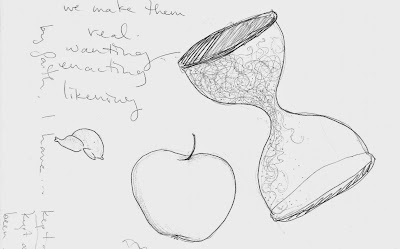not very long ago at all I actually stopped and read this poem, "Optimism" by Jane Hirschfield, posted ephemerally somewhere somehow by the instagram account Poetry is Not a Luxury.
it is a poem from a collection published in 2005. not very long ago at all. so it isn't in the public domain, or anywhere close, and so I haven't copied it in full for this post.
but I will write out a meandering ode to what I thought about when I read it + what I am still thinking about.
and what I want to remember about it.
it is difficult to explain what's lovely about a poem. is there a truly effective way to make you see or feel the same satisfying resonance or resonant satisfaction that I felt when I read it, or reread it? doubtful, given that even just recalling what it was like to catch myself reading this poem for the first time seems pretty impossible.
part of it is in the journey-- simple, with a first-person subject and her point of view in flux. her admiration evolving. and we get a collection of sturdy nouns as an anchor along the way: resilience, resistance, tenacity, intelligence, persistence.
I'm reminded of friend Trinity once talking with me about the merits of resilient as an alternative to the buzzier buzz-word sustainable. what's the point of something sustainable if it won't resist or withstand a few worst case scenarios? sustaining a system in good times isn't the same at all of sustaining it through a disaster. so we need some more words to talk about more possibilities.
speaking of contrasts, this poem gives us pillows vs. trees.
the stubbornness of a same shape over and over vs. the sinuous tenacity of remolding yourself to follow the brightest light, wherever you find it
these words. the journey of them.
you can see the pillow, its impermanent dents. perhaps that resistance is worth admiring sometimes too.
and you can see the tree, green and pliant, with branches reaching, shadows falling in its way.
some part of me, finding herself somehow pausing long enough, focused enough, to let these words in properly-- she relates to the tree, to the feeling of being forced to cast around for different light.
and then the beautiful ending. the contrasting conjunction that breaks down any fear we might have about our blindness preventing any growth.
"But out of such persistence arose turtles, rivers, / mitochondria, figs – all this resinous, unretractable earth."
these words. the tip tapping -ence, -ance, -acity of those nouns, and the -ome, -oam, -uous, -ose, -ous, and -able. the sounds of them and the feel of them.
the words in this order like this evoke so much hope even without the title tying a neat bow around that authorial intent. the hope of small turns, motivated by whatever subtle senses we may or may not understand, leading steadily to so much wild and undeniable beauty.
it feels almost like I've just written some kind of literary analysis of this poem. maybe a third of one, or something. I did not grow up to be a literary scholar, so a third of an analysis is probably just fine.

in other news:
we painted some of the walls of our new house a few weeks ago.
oh yeah-- we bought a house. it feels so very grown-up of us to have done such a thing.
next exciting house project: patio furniture.
I am excited for the end of spring semester. for consistently warmer weather and more time to be outside, to sleep, and to read whatever I want. our new nearest public library looks awesome (though
its fairly basic clunky website does not quite match, I must say). it has a little cafe, open 7am - 3pm, and I really hope I can arrange my life in a way that allows a few future mornings here and there sitting with books and notebooks and tea in a library cafe. what could be better than that?

































